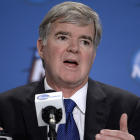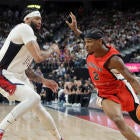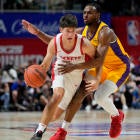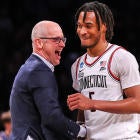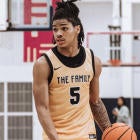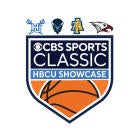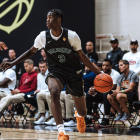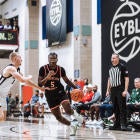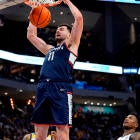The FBI's exposure of widespread bribery, fraud and cheating in college basketball has hit the sport hard, and now NCAA president Mark Emmert has conjured a committee that he hopes will clean up the sport. Fifteen days removed from the bombshell of a story that jolted college hoops into a state of discomposure, Emmert announced the NCAA has formed a "Commission on College Basketball" lined with big names and big objectives.
"The recent news of a federal investigation into fraud in college basketball made it very clear the NCAA needs to make substantive changes to the way we operate, and do so quickly," Emmert said in a press release. "Individuals who break the trust on which college sports is based have no place here. While I believe the vast majority of coaches follow the rules, the culture of silence in college basketball enables bad actors, and we need them out of the game. We must take decisive action. This is not a time for half-measures or incremental change."
Emmert and the NCAA have put together a committee that will be chaired by former U.S. Secretary of State, Condoleezza Rice. Emmert touts that this committee "will be composed of leaders from higher education, college sports, government and the business world, as well as accomplished former student-athletes."
The commission will work to rework the sport's weaknesses with a three-prong approach. Here's how Emmert lays out his vision:
1. The relationship of the NCAA national office, member institutions, student-athletes and coaches with outside entities, including:
- Apparel companies and other commercial entities, to establish an environment where they can support programs in a transparent way, but not become an inappropriate or distorting influence on the game, recruits or their families.
- Nonscholastic basketball, with a focus on the appropriate involvement of college coaches and others.
- Agents or advisors, with an emphasis on how students and their families can get legitimate advice without being taken advantage of, defrauded or risk their NCAA eligibility.
2. The NCAA's relationship with the NBA, and the challenging effect the NBA's so-called "one and done" rule has had on college basketball, including how the NCAA can change its own eligibility rules to address that dynamic.
3. Creating the right relationship between the universities and colleges of the NCAA and its national office to promote transparency and accountability. The commission will be asked to evaluate whether the appropriate degree of authority is vested in the current enforcement and eligibility processes, and whether the collaborative model provides the investigative tools, cultural incentives and structures to ensure exploitation and corruption cannot hide in college sports.
Item No. 2 speaks directly to something that's been in the headlines since the summer. NBA commissioner Adam Silver has publicly discussed changing the NBA's current rule on eligibility for the NBA Draft. The NCAA has no say over this; it's on the owner and the NBA Players Association to collectively bargain. But the NCAA can tweak the specifics of its rulebook in regard to professional eligibility and if student-athletes could hire agents, which is allowed in some other Division-I sports.
Emmert will serve on the 14-person commission, and among others, will be joined by former Duke star (and current CBS broadcaster) Grant Hill; former NBA star David Robinson; former college coaches Mike Montgomery and John Thompson III; former Florida athletic director Jeremy Foley; and current Ohio State athletic director Gene Smith. The committee will formally begin its discussions in November with a stated goal of legislation reform to be presented next April.
Terms for members on the commission, as of now, are just for six months -- until April 2018. There are four scheduled meetings -- some, apparently, via teleconference or videoconference -- between November and March.
As of now, this is clearly a passion project for Emmert who, according to the commission's charter, has appointed every person -- including Rice -- to the committee. Emmert no doubt sees this story of FBI covert surveillance and blockbuster exposure on the warts of major college basketball as one of the defining events of his tenure as NCAA president.
"We need to do right by student-athletes," Emmert said. "I believe we can — and we must — find a way to protect the integrity of college sports by addressing both sides of the coin: fairness and opportunity for college athletes, coupled with the enforcement capability to hold accountable those who undermine the standards of our community."
The committee's objectives do not state an examination of the amateur sports model. That existence -- a flawed, unjust template for decades in the eyes of the NCAA's critics -- is what some have argued is at the heart of the FBI probe in the first place. In absence of a fair market for high school and college basketball players to earn money for their skillset, or even their likeness, a black market for services arises and creates desires for hundreds of thousands of dollars to switch hands in order to steer players to certain schools, shoe companies and financial advisers.








